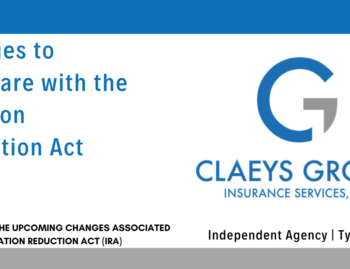
Will My Medicare Last?
On a weekly basis, clients ask me about the solvency of Medicare. No, they don’t use the word “solvency,” or even words like “bankrupt,” but clients do regularly ask me my informed opinion on how long Medicare will be around—at least in the form we know it now.
But, before I reveal how I answer that continuous question, I want to show you why I answer as I do. In other words, let’s look at some factual evidence of the state of Medicare now, so we can project toward the future. But before we do, let’s do a primer on how Medicare works.
How Does Medicare Work?
Medicare Part A covers hospitalization, hospice, home health care following hospital stays, and skilled nursing facilities. The primary financing mechanism for Part A Medicare is FICA taxes, money withheld from the paychecks of current workers.
On the other hand, Medicare Part B covers doctor charges (both outpatient and inpatient charges), outpatient hospital, labs, tests, x-rays, MRIs, durable medical equipment, home health, and ambulance. Part B Medicare has a premium (currently $121.80 for new Medicare recipients, $104.90 for people on Medicare prior to 2016) and is also funded by a trust fund in which money is automatically transferred from the general fund. Therefore, as currently structured, Medicare Part B cannot go broke, though it could use an increasingly greater part of the general fund.
Medicare Part C refers to Advantage Plans, a private insurance alternative to Original Medicare. It has no trust fund.
Finally, there is Medicare Part D prescription drug plans offered by private insurance companies but regulated by Medicare. Part D plans are financed by premium payments, cost sharing by those insured by the plans, and the Medicare Part B trust fund.
Now that we have a basic understanding of Medicare, let’s look at the facts to answer the question: Is Medicare going bankrupt?
Medicare Costs and Waste, Fraud, & Abuse
We first need to understand that Medicare will likely remain solvent through 2028. That means that, over the next twelve, or so, years, Medicare will be able to pay all of its projected bills for hospital coverage. That’s good, as it is the hospital costs (Part A Medicare coverage) that are the most expensive charges for Medicare. However, after that point, Medicare cost projections have deficits topping $200 billion in a hurry. These are attributed, not only to rising health costs, but also waste, fraud, and abuse of $60 billion annually.
Adding to these concerning figures, in 2026, expenditures will exceed revenues, which means more Medicare money will be spent than will be taken in. Furthermore, the trust fund that covers Medicare expenditures will be at zero by that same year.
The 2016 Medicare trustees’ report stated that the Medicare cost growth-rate per Medicare beneficiary (an individual on Medicare) remains low. Per enrollee spending has remained at 1.4% per Medicare recipient; however, Medicare Part D expenditures are estimated to increase by 5.8% per Medicare recipient through 2025. In addition, remember what we discovered regarding Medicare waste, fraud, and abuse: It is eating at Medicare at an alarming rate! Adding to this concern is the fact that Medicare spending is a growing share of the federal budget.
Medicare & Bankruptcy?
This means that there is no question Medicare funding needs to be addressed by Congress. But is Medicare facing bankruptcy? Not even close.
What This Means for Medicare Recipients
So what does this mean for current Medicare recipients? Undoubtedly, Medicare beneficiaries will be facing higher cost-sharing measures. The Medicare Part B premium will rise, and Medicare Part A and B deductibles and copays will increase, driving up costs for Medicare Supplements and Medicare Advantage Plans. But current Medicare recipients will not have to worry that their Medicare will disappear.
So, what about future Medicare beneficiaries? This depends on how soon they enroll on Medicare. It is doubtful that Congress will ever eliminate Medicare, but the next generation will likely experience Medicare in a different way than current beneficiaries “enjoy,” such as higher costs, greater cost-sharing shares, and “innovative” supplemental options.
Rest Assured
But at least for now, Medicare continues to function, and current Medicare recipients can rest assured their Medicare benefits are not going away any time soon.















































